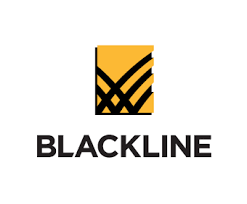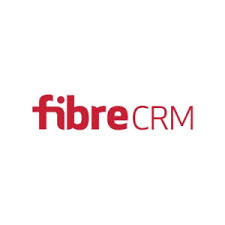ANNA Money: Integrated Digital Banking for UK SMEs

Small and medium-sized enterprises (SMEs) form the backbone of the UK economy, representing 99.9% of all private sector businesses and employing approximately 61% of the workforce. In recent years, the need for efficient financial management has driven a growing adoption of digital banking and fintech solutions among SMEs. ANNA Money, founded in 2017 by Eduard Panteleev and Boris Diakonov, is a digital platform designed to consolidate key financial operations for small businesses and freelancers. By combining banking services with AI-powered administrative tools, ANNA Money aims to reduce the time SMEs spend on accounting and regulatory compliance.
Market Context and Digital Adoption
The UK SME sector has seen a steady shift toward digital financial tools. According to industry research, around 40% of SMEs now utilize some form of digital banking or fintech solution to manage accounts, track expenses, and process payments. Traditional banks often fall short in meeting the needs of smaller businesses, with SMEs citing complex fee structures, limited automation, and slow support as key pain points. Digital-first platforms such as Tide, Starling Business, and Revolut Business have capitalized on these gaps, offering mobile-accessible accounts and basic automation tools. ANNA Money distinguishes itself by integrating multiple core financial functions into a single platform, reducing reliance on third-party applications.
Core Functionalities
ANNA Money’s platform is built around five primary features that address common SME financial challenges:
- Business Accounts – ANNA Money provides a UK-based business account with a sort code, account number, and IBAN. This facilitates domestic and international payments and allows SMEs to manage cash flow through a single, mobile-first interface.
- AI-Powered Invoicing – Users can create, send, and track invoices within the platform. AI tools automatically categorize income and predict cash flow, while integrated payment links expedite collections, a critical factor for SMEs managing tight cash cycles.
- Expense Management – Receipts can be scanned and attached to transactions, with AI automatically categorizing expenditures. This reduces manual bookkeeping, enhances financial oversight, and streamlines reporting for audits or HMRC submissions.
- Tax Filing and Compliance – The platform calculates VAT and other tax obligations and supports direct filing with HMRC. Automated tax reporting minimizes errors, which is particularly relevant given that small businesses often lack dedicated accounting personnel.
- Team Management and Payment Tools – ANNA Money allows multiple users to access accounts, issue physical or virtual debit cards, and set spending limits. This supports SMEs with small teams or remote employees, enabling controlled financial delegation.
Funding and Investors
ANNA Money has raised a total of approximately $88.3 million over four funding rounds. Notable investors include ABH Holdings, Houghton Lane, Kinetik, Smart Partnership Capital, and Tech Nation. The company has also participated in equity crowdfunding through Crowdcube. This investment has supported product development, scaling operations, and expanding customer acquisition. Analysts note that securing high-profile fintech investors signals confidence in the platform’s long-term market potential and its role in the growing SME digital banking sector.
Trustpilot Ratings and Customer Feedback
ANNA Money maintains a Trustpilot rating of 4.6 out of 5, based on over 2,800 reviews. Customers frequently highlight the platform’s intuitive interface, efficient invoicing tools, and responsive support. Users report that the onboarding process is straightforward, the mobile app is user-friendly, and the integration of invoicing and expense tracking reduces time spent on administrative tasks. SMEs particularly value features such as payment links and the ability to attach receipts to transactions, which simplifies bookkeeping and tax preparation. Positive reviews emphasize the platform’s reliability and clarity, although some users note occasional delays in customer service responses during peak periods.
Security and Regulatory Oversight
ANNA Money operates as an electronic money institution regulated by the Financial Conduct Authority. Customer funds are safeguarded in tier-one banking institutions, though the platform does not provide Financial Services Compensation Scheme protection. Security protocols include two-factor authentication, data encryption, and continuous monitoring. This regulatory structure enables ANNA Money to offer innovative financial tools while maintaining compliance with UK financial law.
Growth Metrics and Industry Recognition
The company has reported substantial growth since its inception. Deloitte’s UK Technology Fast 50 ranks ANNA Money among the fastest-growing fintechs, with annual sales growth exceeding 140% over three years and a reported compound annual growth rate above 550% as of 2025. Recognition also includes a ranking of 18th in The Sunday Times Tech List. Analysts attribute this expansion to the increasing adoption of mobile-first solutions by SMEs and the efficiency gains offered by an integrated platform.
Competitive Landscape
ANNA Money operates in a competitive field. Tide offers business accounts and basic automation; Starling Business provides accounts with limited expense management; Revolut Business combines currency exchange and some accounting integrations. ANNA Money differentiates itself by consolidating invoicing, expense management, tax filing, and team payment management into a single interface. This reduces reliance on multiple tools, cuts administrative overhead, and streamlines workflows for SMEs with limited finance teams.
User Experience and Adoption
Independent reviews highlight ANNA Money’s mobile accessibility and intuitive interface as key drivers of adoption. SMEs report that AI-driven categorization and automated invoice tracking reduce time spent on routine accounting, freeing management to focus on operations and growth. Multi-user access with customizable spending limits allows small teams to operate efficiently without central bottlenecks. These features are particularly valued by freelancers and microbusinesses, which often lack dedicated finance staff.
Future Outlook
The UK fintech sector is expected to continue its rapid expansion, driven by regulatory changes such as open banking, increased digital adoption, and the growing integration of AI in financial tools. ANNA Money is positioned to capitalize on these trends by offering a consolidated platform that addresses multiple SME pain points. Continued growth will depend on regulatory compliance, platform reliability, and the ability to maintain security standards while expanding functionalities. Analysts suggest that platforms like ANNA Money could increasingly capture market share from traditional banks, particularly among SMEs seeking efficiency and automation.
Wrapping Up
ANNA Money illustrates the shift toward integrated, mobile-first financial management for SMEs in the UK. By offering business accounts, AI-assisted invoicing, expense tracking, tax filing, and team payment management, the platform addresses key inefficiencies that have traditionally burdened small businesses. Its growth metrics, adoption rates, regulatory compliance, investor backing, and strong Trustpilot rating indicate a significant foothold in the SME fintech market. As digital banking adoption continues to rise, ANNA Money’s approach may serve as a model for how fintech platforms can streamline operations and support SMEs’ financial management needs effectively.





